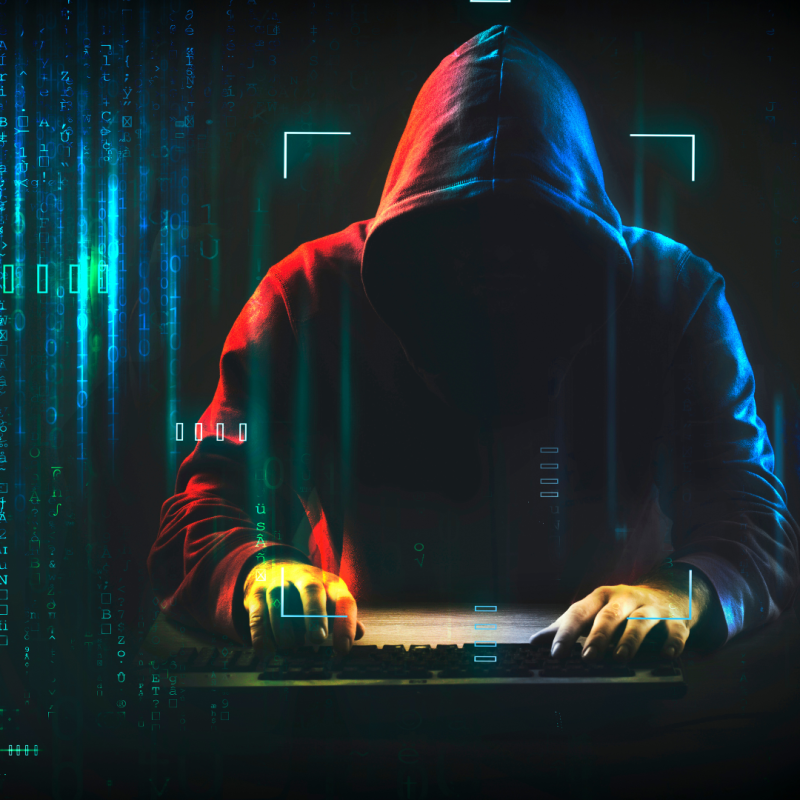News Post
The Dark (And Scary) Web: Easy Things You Can Easily Do To Protect Your Digital Privacy Online (Part 1)
Published on October 31, 2022
 While news of data breaches, ransomware, phishing, and hacking in general has made more people aware of the need for caution online, there are still many who haven’t taken some simple steps to actually protect themselves. Some think it’s not necessary because they think a hacker wouldn’t waste time on them. Others assume they are protected. And some just try to limit their online activities as much as possible.
While news of data breaches, ransomware, phishing, and hacking in general has made more people aware of the need for caution online, there are still many who haven’t taken some simple steps to actually protect themselves. Some think it’s not necessary because they think a hacker wouldn’t waste time on them. Others assume they are protected. And some just try to limit their online activities as much as possible.
The Dark Web
The ”dark web” is real. It is an intentionally hidden part of the internet that is not indexed by search engines like Google, so it is not accessible to most browsers. It is accessed by browsers created specifically for the dark web that allow encrypted entry points and pathways for the user, thus allowing their dark web searches and activities to be anonymous. The dark web offers data and services such as cloned credit cards, stolen online banking logins, hacked social media accounts, hacked email accounts, etc. Hackers buy and trade this data for shockingly small amounts of money.
No computer system is 100% unhackable. If a hacker wants to get into your system, he or she will do so. However, there are some simple measures that you can put in place that may make a hacker less interested in your system and encourage them to move on to greener pastures.
Install Antivirus Software (and use it)
Antivirus software was originally designed to detect and delete computer viruses. Today’s antivirus software can protect your system from many other threats. Depending on the software, antivirus software can protect your system from intrusions such as ransomware, keyloggers, adware, spyware, phishing attacks (fraudulent emails pretending to be someone else sent to induce individuals to reveal personal information), and others. Installing antivirus software is simply a must, but you should keep two things in mind. First, either set up your software to automatically download updates or manually check for updates often. Your antivirus software can just run in the background, downloading updates and checking your emails, links clicked, websites accessed, etc. You should also periodically open the software’s interface and make sure everything is okay. Again, depending upon the software, you may set it up to regularly scan your entire system (at night when not in use is best), or you may do this manually.
Which antivirus software is best? There are many good products out there with many reviews, so do a little homework and find one that works for you and will run on your system. (I recommend Tom’s Guide for software/hardware reviews.) Microsoft Windows comes with built-in antivirus software called Microsoft Defender. Almost any other third-party antivirus software is better, so I don’t recommend relying on Defender. Bitdefender, Norton and McAfee are three of the big antivirus software products frequently recommended in 2022. Kaspersky, Eset Nod32, and Avast are some others frequently recommended. If your antivirus software does not offer ransomware protection, find and install separate software that does. (See these.)
Use a Strong and Unique Password
Remember the dark web discussed above? The denizens of the dark web can easily purchase thousands of hacked usernames and passwords for a few dollars. If you are still using the same password for every login, stop! If just one of the websites you use gets hacked, then you will have to change not just that password but also every password for every other login. You should always use complex and unique passwords for every login. Really the only way to keep track of so many logins is by using a password manager. All you need to do is remember your master password for the manager to retrieve all of your stored login information. You need only to remember this master password, or if your password manager has the capability, secure it with Face ID and/or some other biometric. Don’t know how to come up with that many strong passwords? Let your password manager generate the password for you. But what if your password manager gets hacked? Reputable password managers are extremely secure, and even if there was a breach, they encrypt your data which makes it nearly impossible to be interpreted. In any event, most password managers do not store your master password. I have used Keeper for years. LastPass and Bitwarden are also highly recommended.
Chris Colee
Practice Management Advisor
